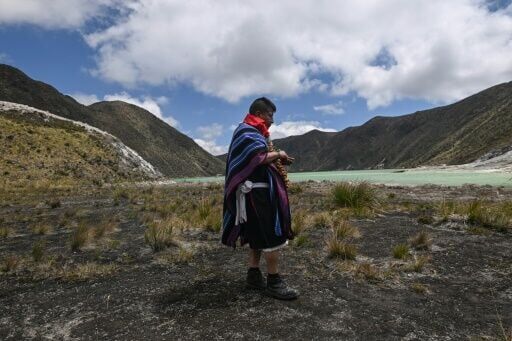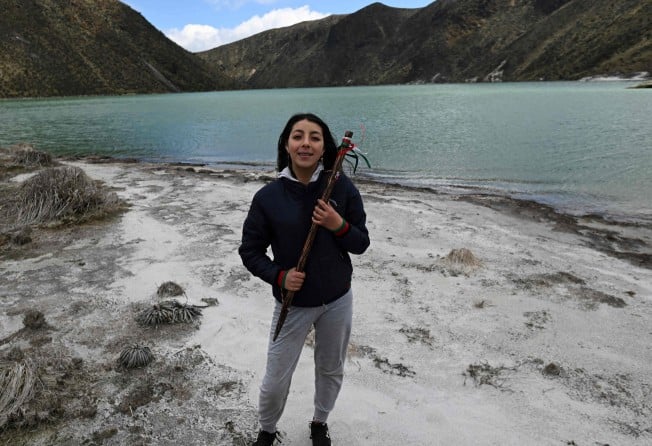How Indigenous guards saved a Colombian lake from overtourism
Hervé BAR
Wed, October 16, 2024 at 10:57 PM CDT·3 min read

Before the two-hour ascension to the lake, a shaman performs a ritual in praise of the cycle of life (JOAQUIN SARMIENTO) (JOAQUIN SARMIENTO/AFP/AFP)
In the crater of a semi-dormant volcano in southwest Colombia lies a sacred lake of startling green which used to draw a steady stream of garbage-tossing tourists before Indigenous leaders took back control.
Ascending the Azufral volcano which rises to 4,070 meters (2.5 miles) in the western Colombian Andes is not for the faint-hearted.
It's also not for the uninvited. Only those who receive the nod from the governor of the local Indigenous Pastos community may pass.
"The spirits of the lake don't like to be disturbed. We have to ask their permission," Jorge Arevalo, a 41-year-old member of the lake's Indigenous guard, said.
A handful of guards accompanied AFP last month on a rare visit to the lake -- a shimmering body of water three kilometers wide in ever-changing hues of emerald, olive and turquoise, surrounded by sandy beaches.
Before the two-hour ascension, the guards performed a ritual led by a taita (shaman) in praise of the cycle of life.
More:
https://www.yahoo.com/lifestyle/indigenous-guards-saved-colombian-lake-012448771.html

Indigenous guard Carol Arevalo is part of a local group protecting the Green Lake, in Narino, Colombia, from overtourism. Members of the indigenous guard will appear at the COP16 UN biodiversity conference in Colombia to discuss their work. Photo: AFP

